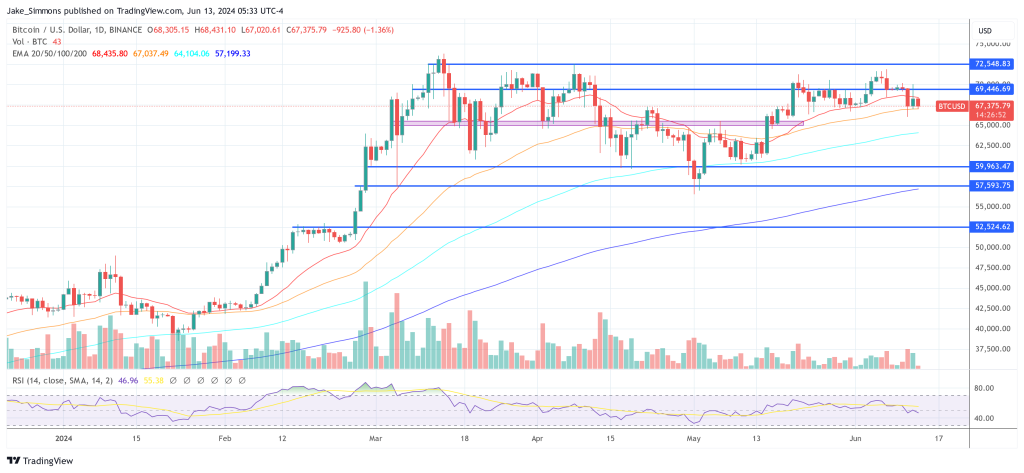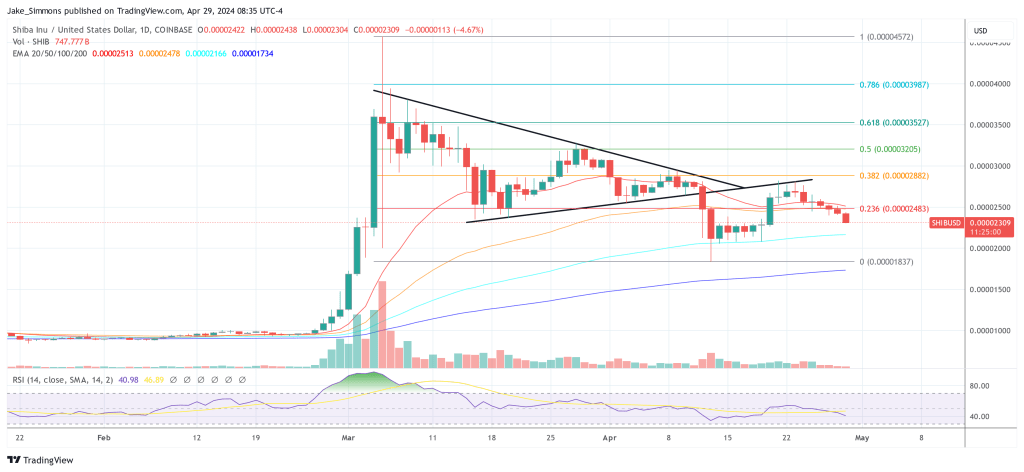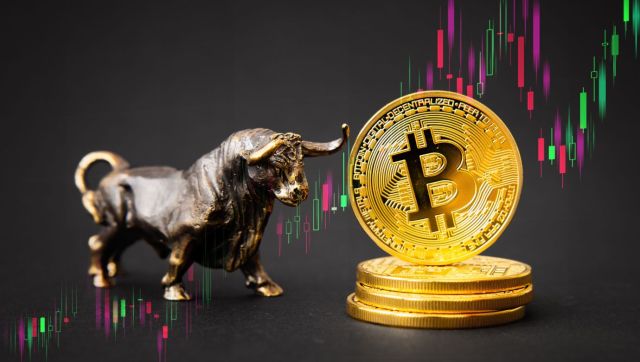Former President Donald Trump’s recent endorsement of Bitcoin mining in the United States has sparked intense debate and speculation among experts, policymakers, and the broader crypto community. Trump’s statements, made on late Tuesday, suggest a strategic pivot towards making the US a dominant force in BTC mining.
“Bitcoin mining may be our last line of defense against a CBDC. Biden’s hatred of Bitcoin only helps China, Russia, and the Radical Communist Left. We want all the remaining Bitcoin to be MADE IN THE USA!!! It will help us be ENERGY DOMINANT,” Trump declared, underscoring his vision of Bitcoin as a critical asset in the nation’s energy strategy.
Bitcoin Game Theory In Full Swing
This declaration has far-reaching implications, particularly in the context of global dynamics and the ongoing competition among nations to assert dominance in this emerging sector. Samson Mow, the founder of JAN3, a firm dedicated to BTC nation-state adoption, highlighted the transformative potential of Trump’s position.
“Many people don’t seem to understand the importance of Trump embracing Bitcoin. This isn’t a partisan thing or even about whether promises will be kept. This is a shift in discourse that precedes nation-state competition to achieve Bitcoin Dominance,” Mow stated on X.
He emphasized that this development will likely be discussed behind closed doors by governments globally, with mainstream media outlets already picking up on the story. “We saw ICBC in China embrace BTC yesterday. This is going to push everything ahead even more,” Mow added, pointing to the Chinese Industrial and Commercial Bank’s recent endorsement of BTC.
Laura Shin, a prominent crypto journalist, raised critical questions regarding the decentralization and security implications of Trump’s proposal. On X, she queried, “Why is everyone celebrating Trump saying that all the Bitcoins should be made in the USA? Doesn’t that create jurisdictional risk and make BTC less decentralized and vulnerable to attack?.” Shin’s concerns center on the potential centralization of BTC mining, which could undermine its core principle of decentralization and make the network more susceptible to geopolitical pressures and cyber attacks.
Responding to Shin’s concerns, Alex Thorn, head of research at Galaxy Digital, offered a strategic perspective. “Many believe global Bitcoin adoption will involve nation states. If BTC is to become a widely held or even global reserve asset, game theory demands it. If a US president makes Bitcoin a national priority, other nations will too,” Thorn explained.
He argued that this move could accelerate the global adoption of Bitcoin, as nations seek to compete for dominance in the ecosystem. “There’s a view that competition will accelerate, ultimately accelerating and entrenching global adoption. If your geopolitical adversaries (or allies for that matter) think it’s important, you must also play the game or risk falling behind. Many Bitcoiners have written and spoken about this: Michael Saylor, Fidelity Digital Assets, Parker Lewis, and Onramp,” Thorn added, referencing key figures and organizations that advocate for BTC’s role in the global financial system.
Shin, however, remained skeptical about the strategic intent behind Trump’s statement. “Agree but I am 1,000% sure that Trump didn’t make this statement with the game theory of other nations around Bitcoin in mind,” she remarked.
Thorn countered, emphasizing that the essence of the matter lies in the unfolding game theory. “Maybe, but the point isn’t whether or not he is aware of the game theory. Bitcoiners are cheering for the game theory playing out as predicted. Trump (or any candidate or national leader) advocating for national Bitcoin policies is expected, even inevitable, & now is accelerating,” Thorn asserted.
Adding another layer to the conversation, Matthew Pines, Director at Sentinel One, shared his insights on the potential consequences of Trump’s pro-BTC stance. “Trump says lots of things. Not all of them turn into policy. But I have a feeling he’s serious about this one,” Pines remarked, pointing out the unpredictable nature of political promises versus actual policy implementation.
He further stressed that it is less about what it means for Bitcoin in the US, but what reaction it triggers by other countries. “Depending on the scope and scale of his potential BTC-related national policy actions—and how well-executed and calibrated they are vis-a-vis existing institutional systems and market expectations—the geopolitical impact could be anything from a shrug-but-watch-and-wait to a holy-sh*t-mad-scramble, or something in between,” Pines remarked.
At press time, BTC traded at $67,375.
Bitcoinist.comRead More



